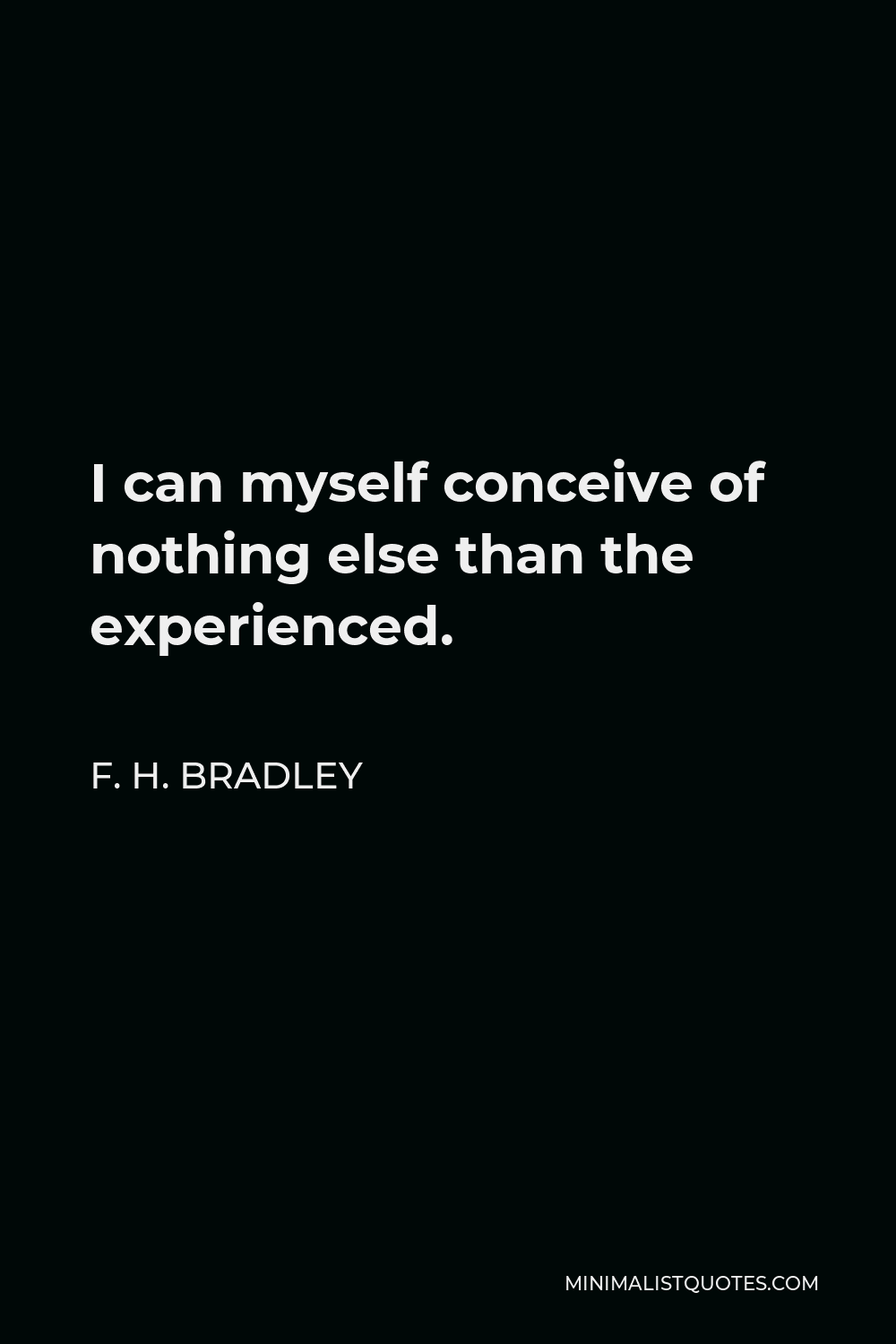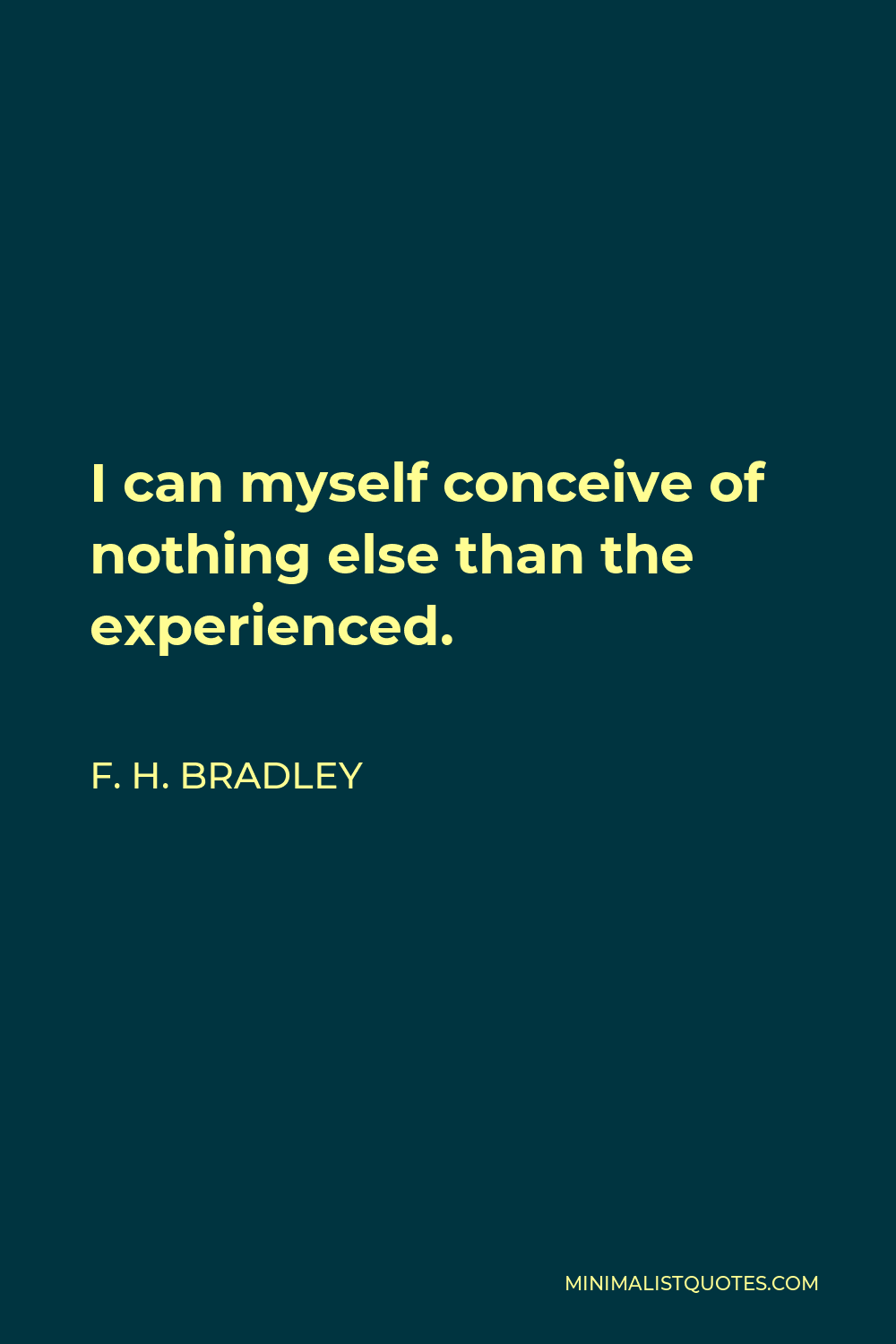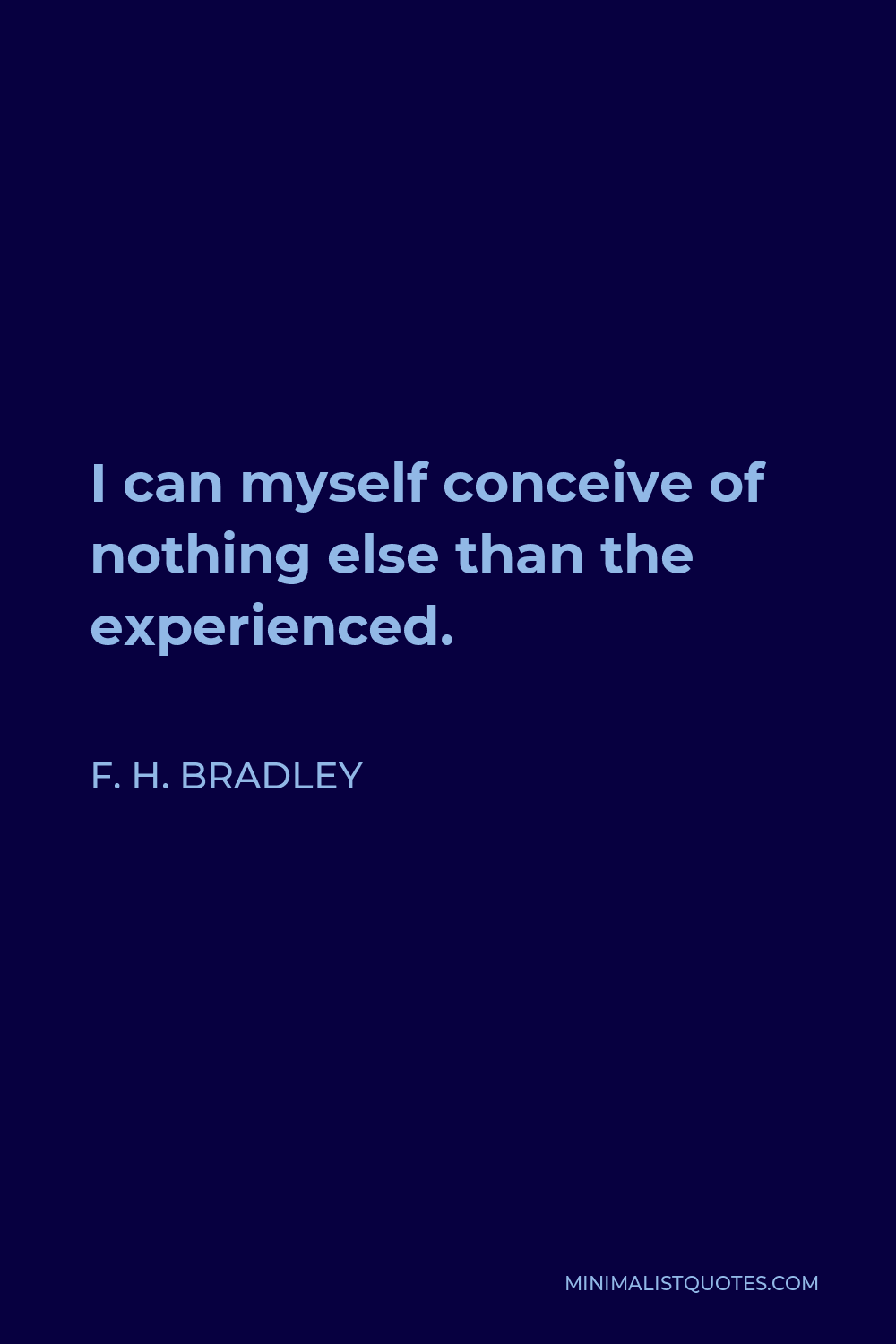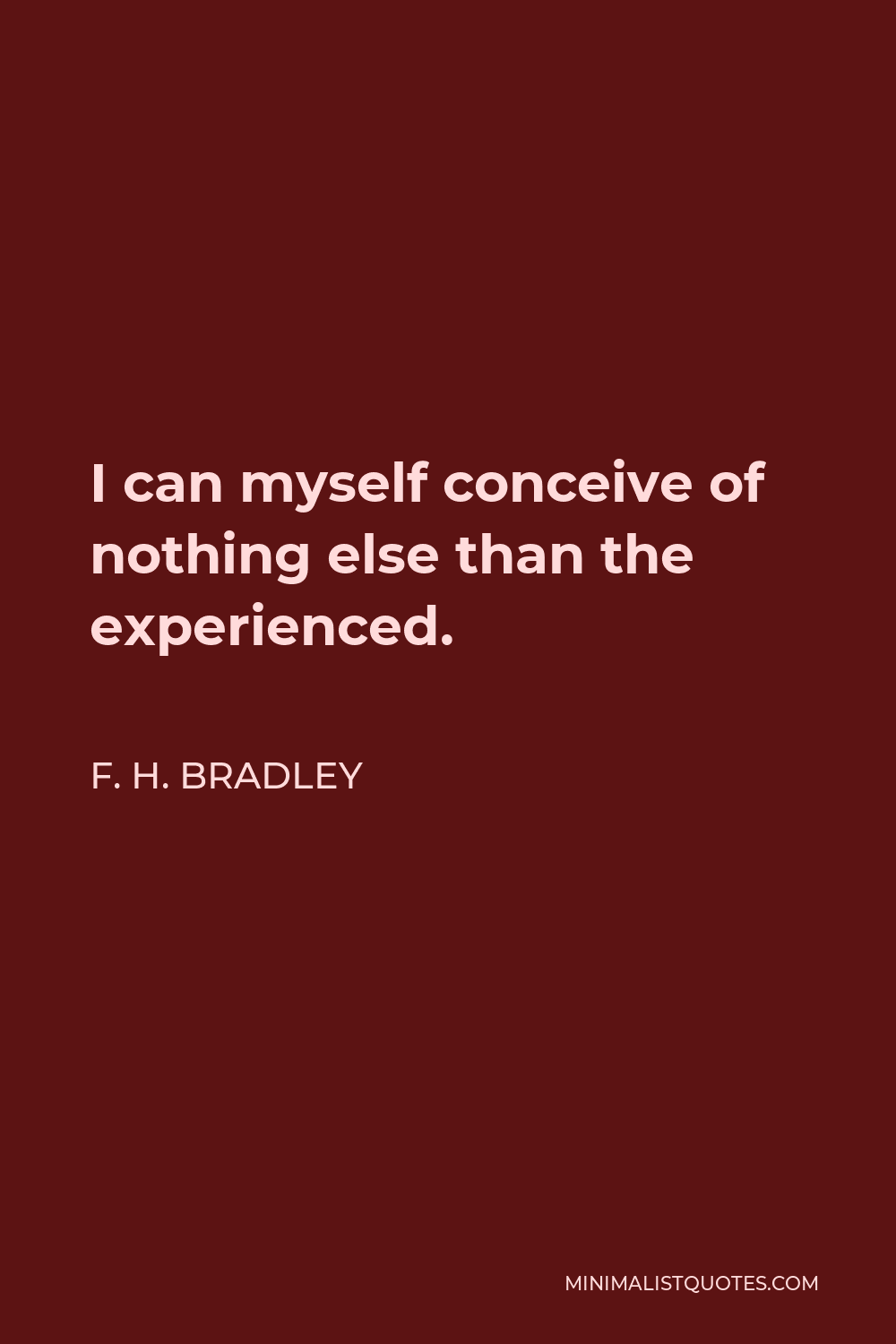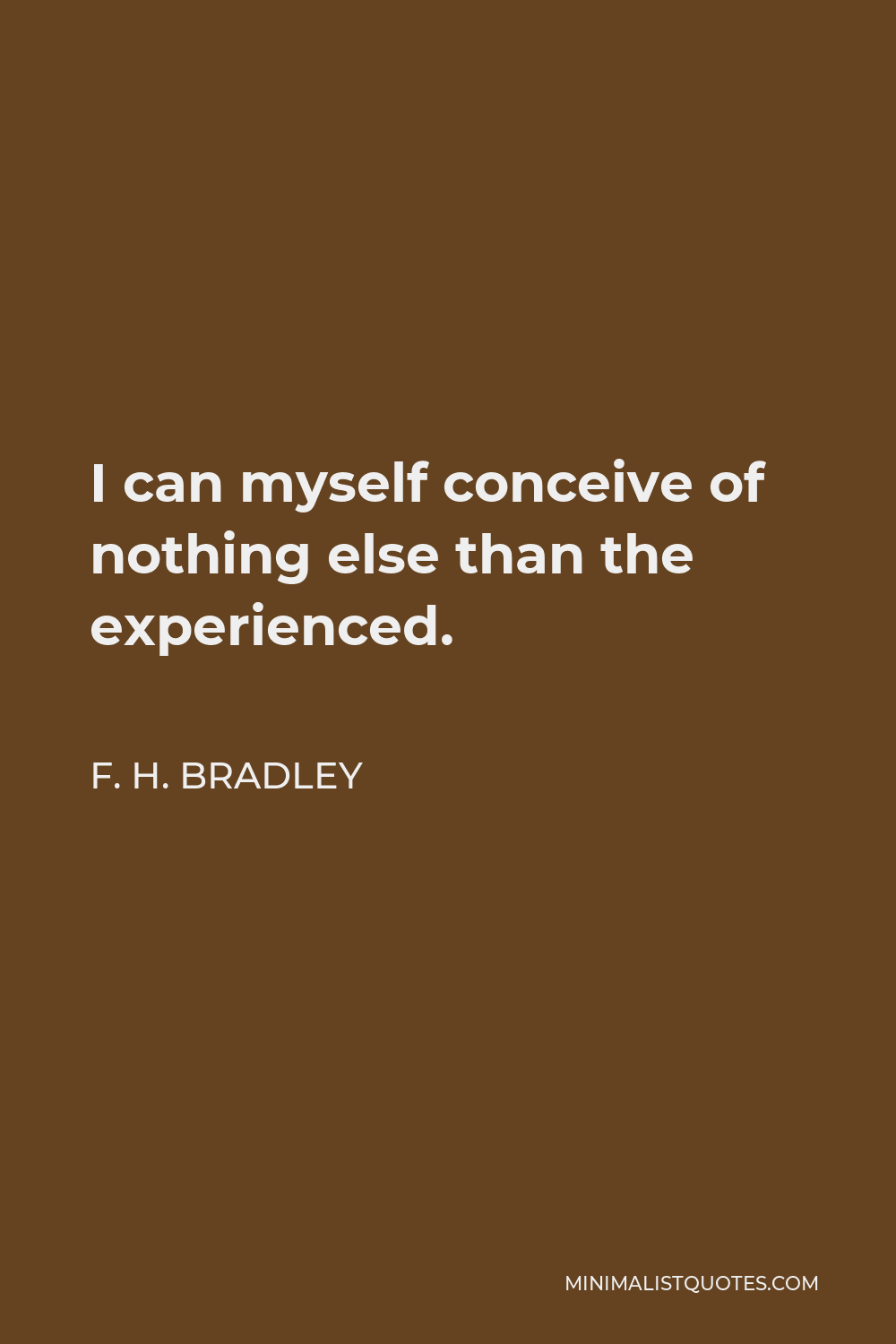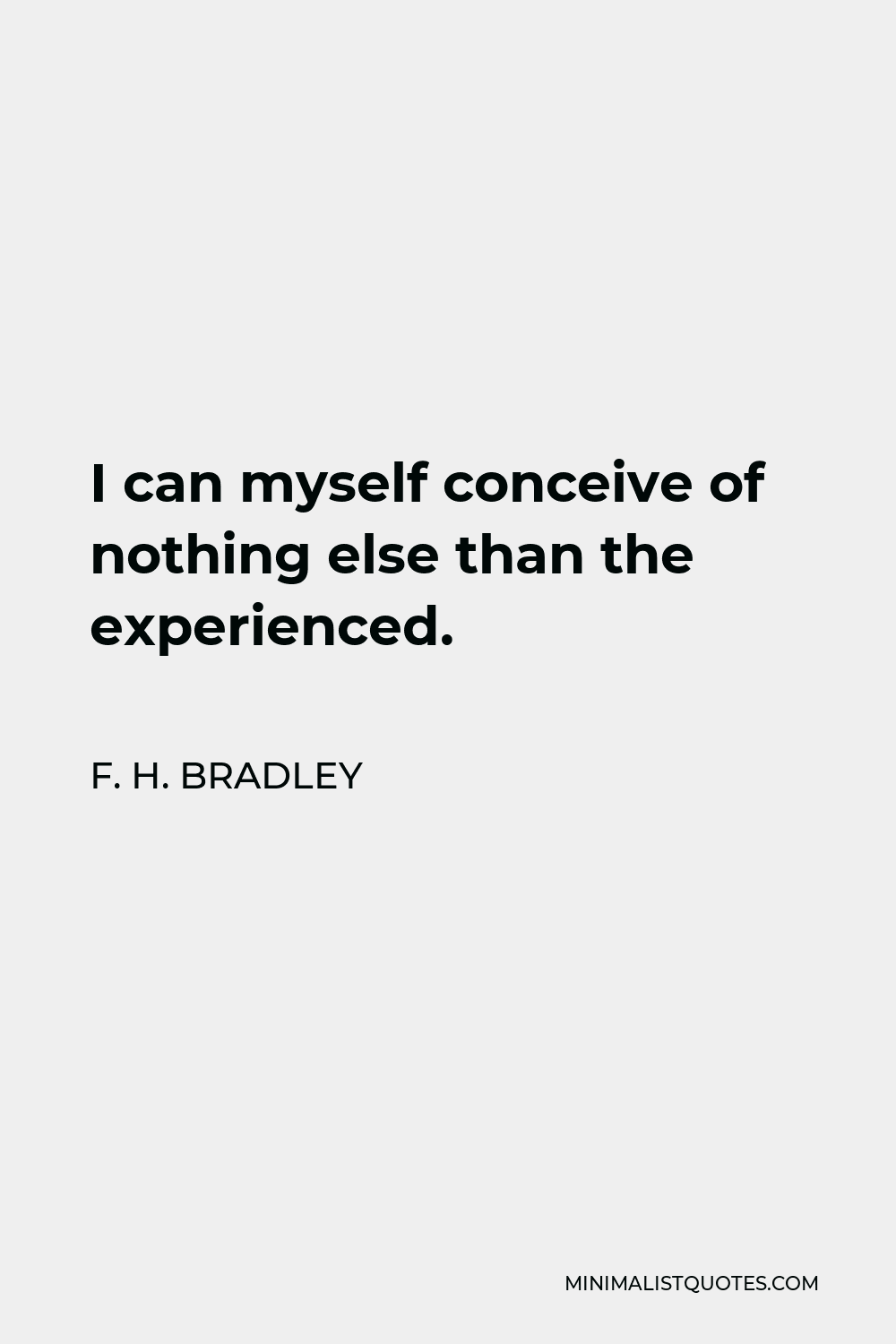The force of the blow depends on the resistance. It is sometimes better not to struggle against temptation. Either fly or yield at once.
F. H. BRADLEYI can myself conceive of nothing else than the experienced.
More F. H. Bradley Quotes
-





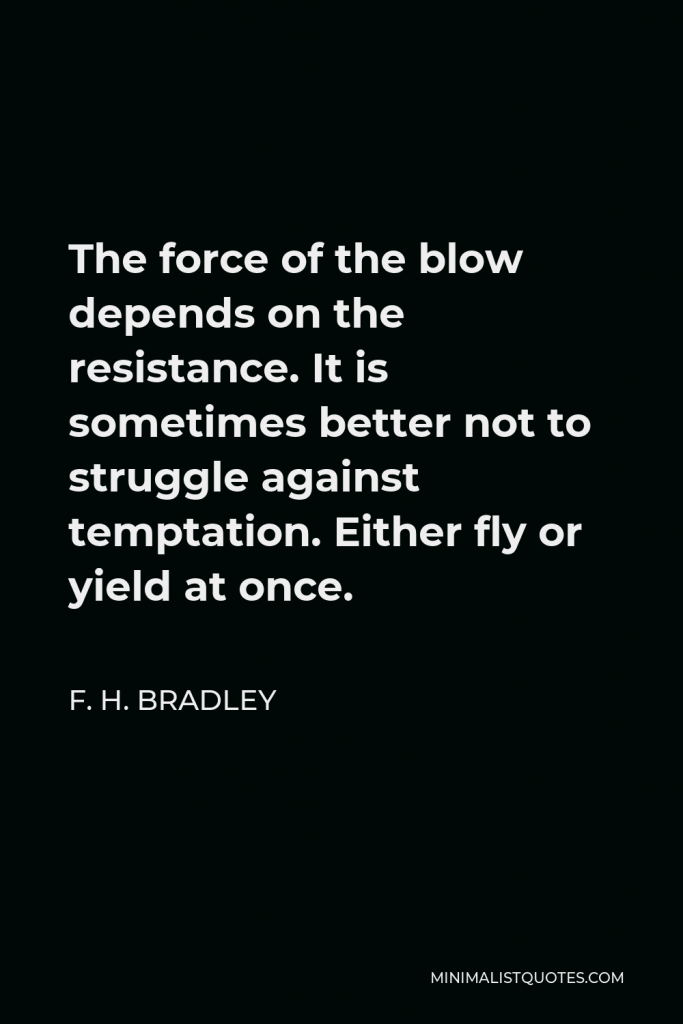

-





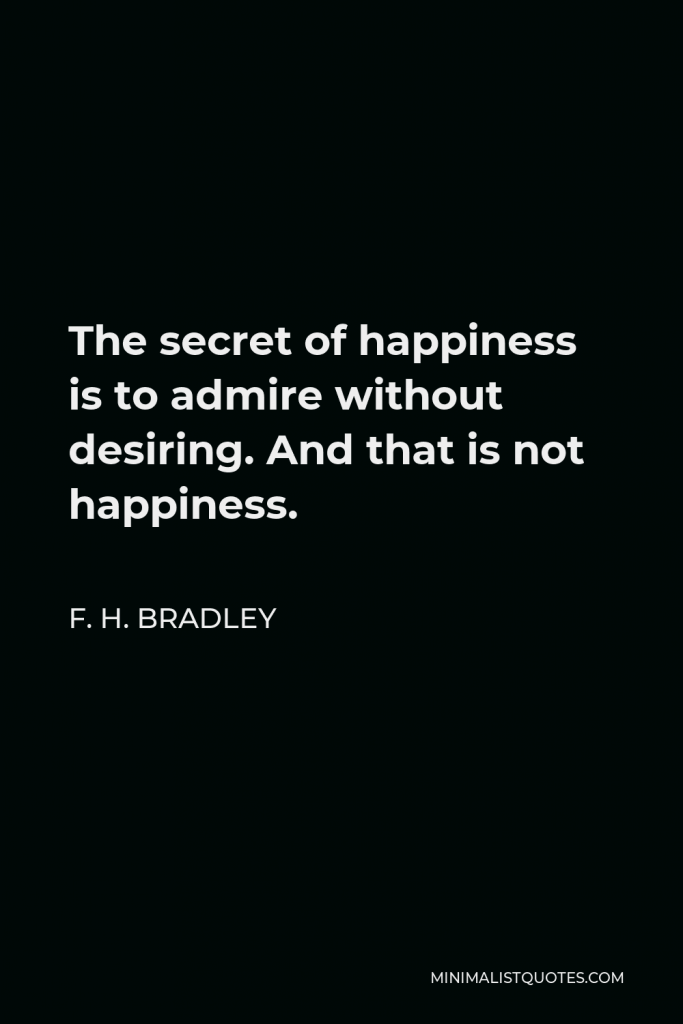

The secret of happiness is to admire without desiring. And that is not happiness.
F. H. BRADLEY -





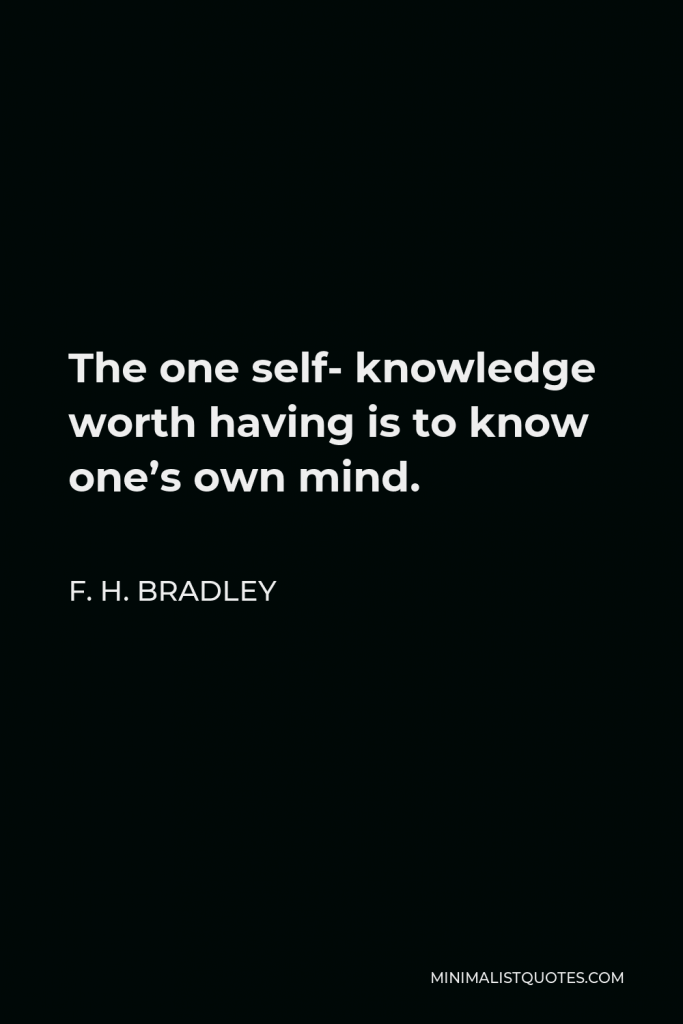

The one self- knowledge worth having is to know one’s own mind.
F. H. BRADLEY -





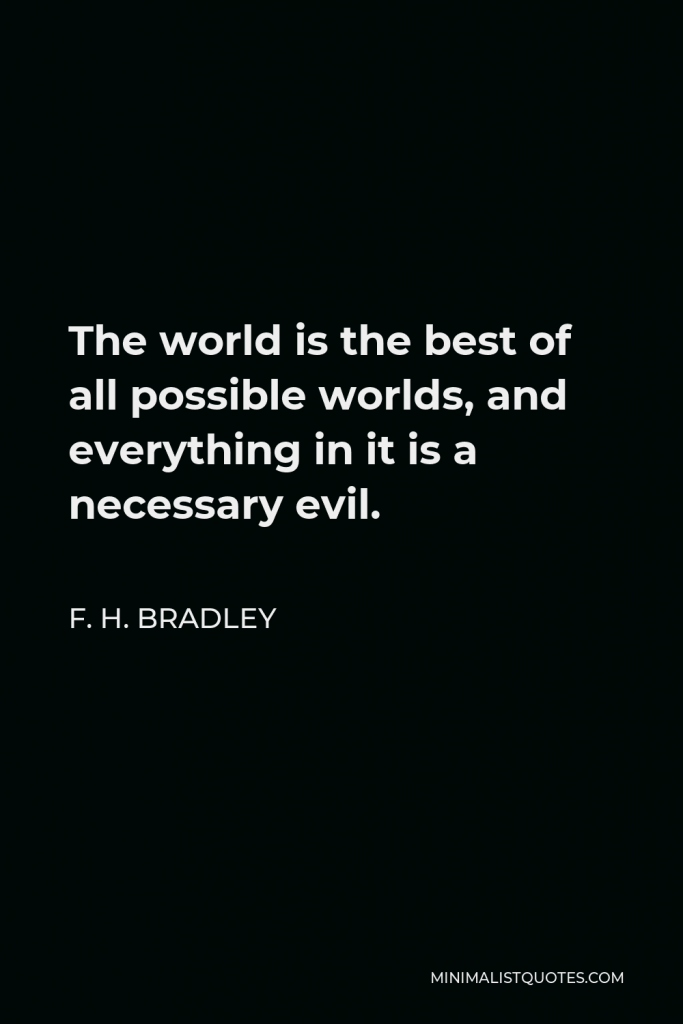

The world is the best of all possible worlds, and everything in it is a necessary evil.
F. H. BRADLEY -





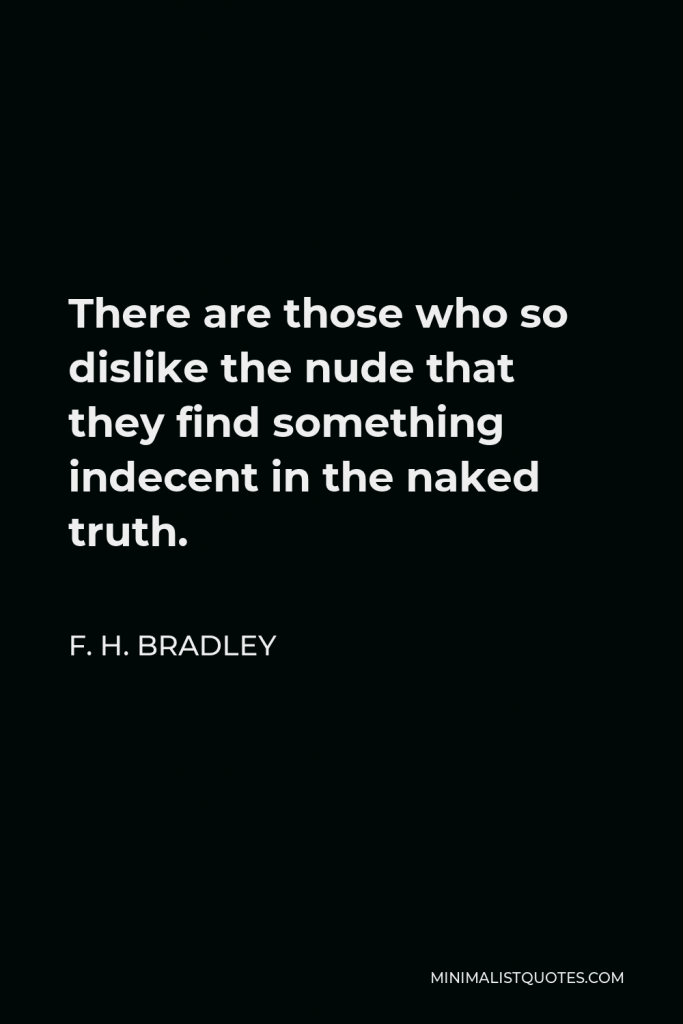

There are those who so dislike the nude that they find something indecent in the naked truth.
F. H. BRADLEY -





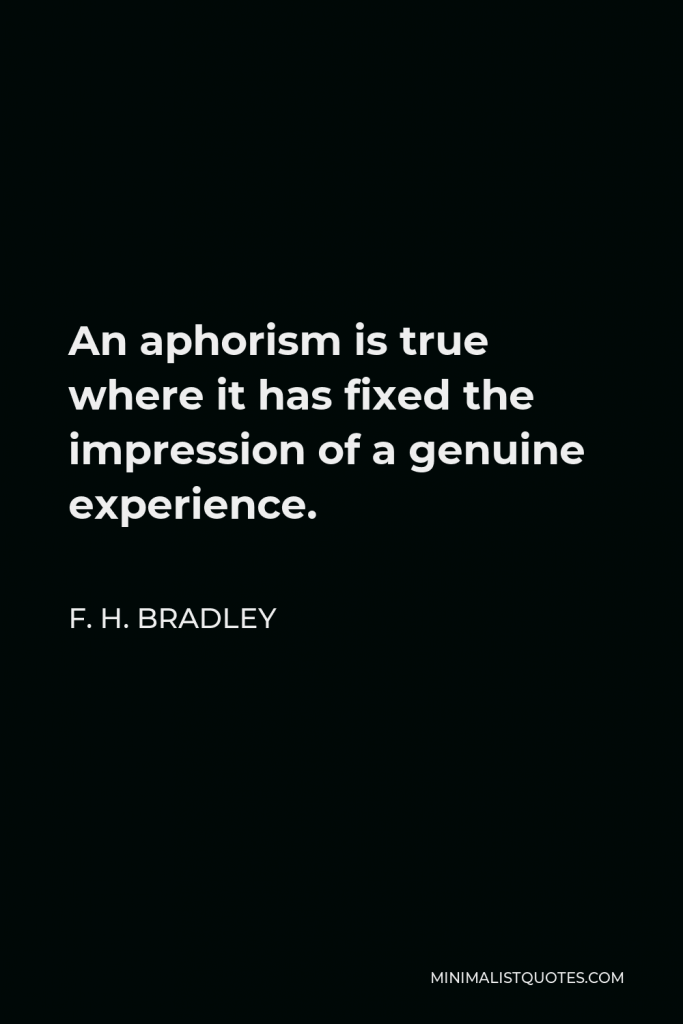

An aphorism is true where it has fixed the impression of a genuine experience.
F. H. BRADLEY -





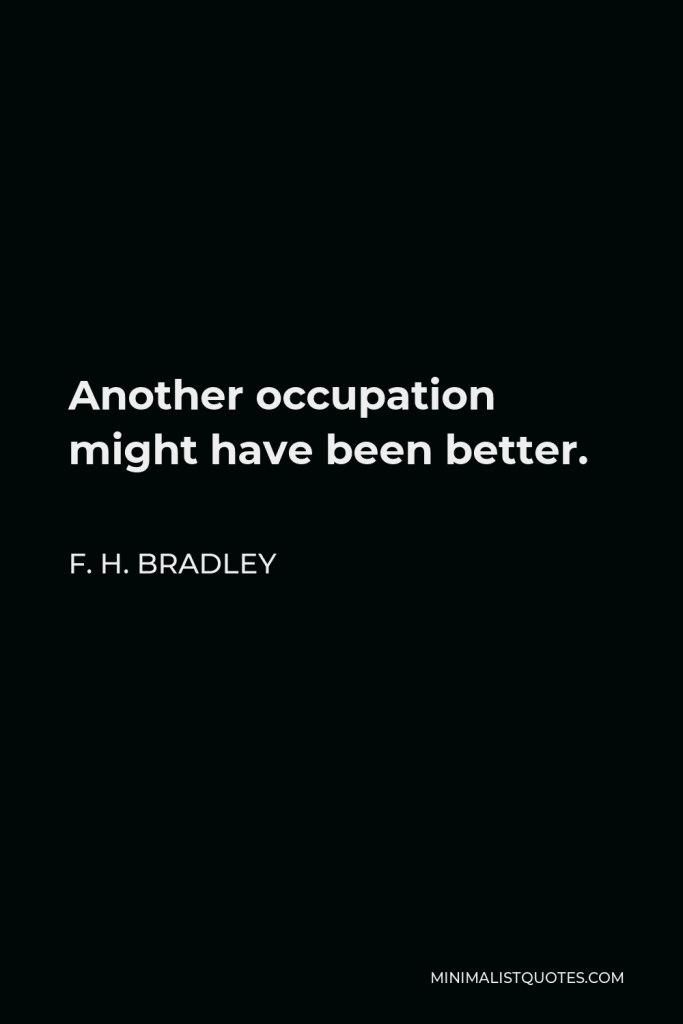

Another occupation might have been better.
F. H. BRADLEY -





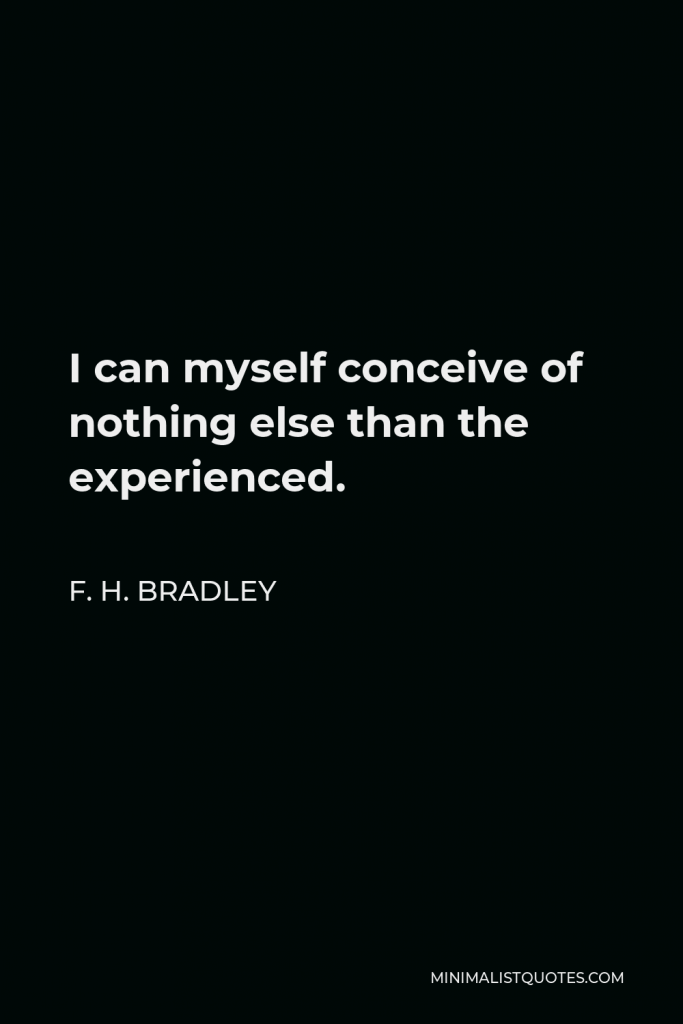

I can myself conceive of nothing else than the experienced.
F. H. BRADLEY -





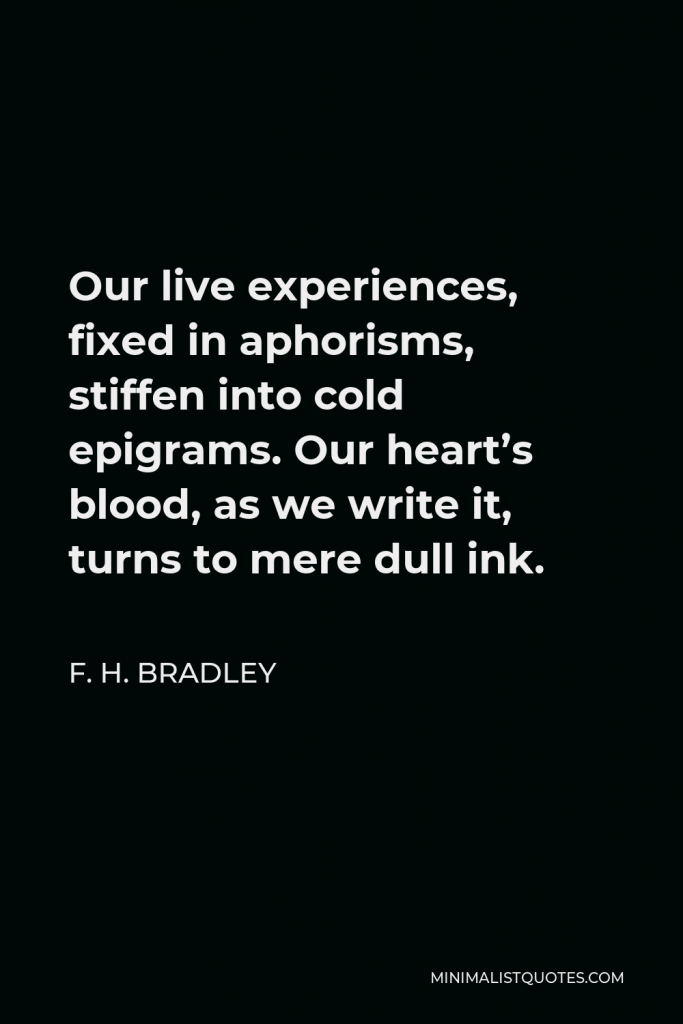

Our live experiences, fixed in aphorisms, stiffen into cold epigrams. Our heart’s blood, as we write it, turns to mere dull ink.
F. H. BRADLEY -





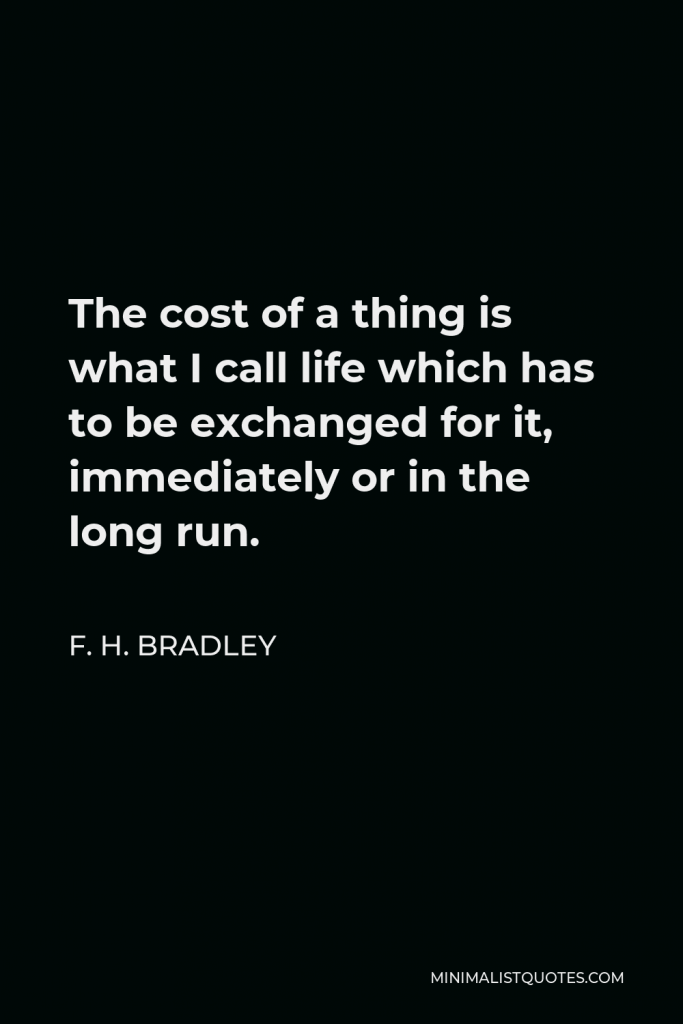

The cost of a thing is what I call life which has to be exchanged for it, immediately or in the long run.
F. H. BRADLEY -





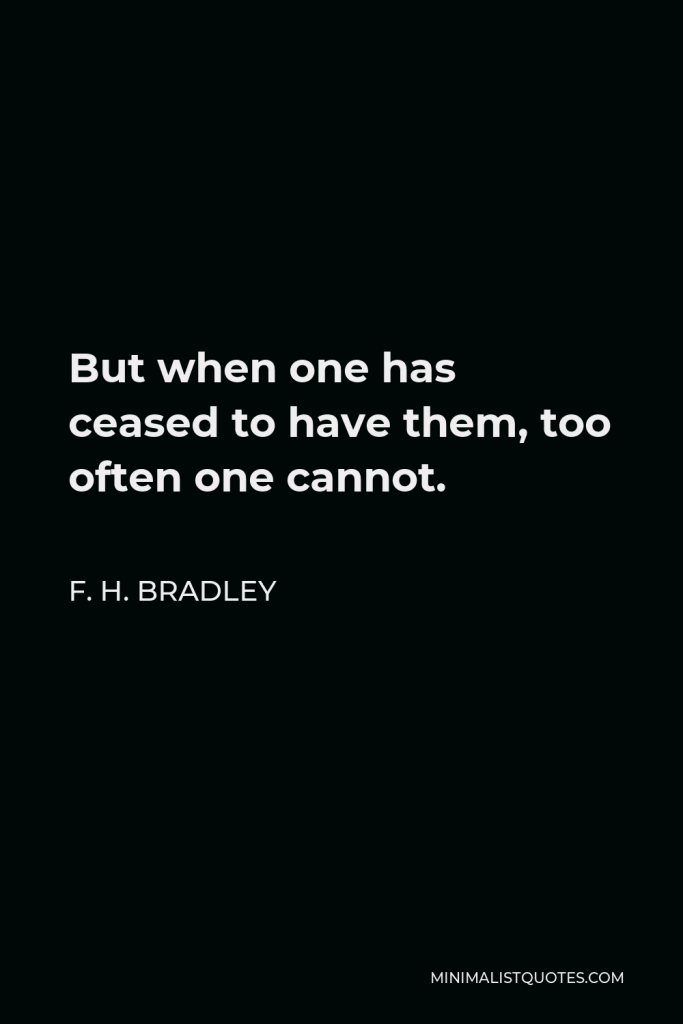

But when one has ceased to have them, too often one cannot.
F. H. BRADLEY -





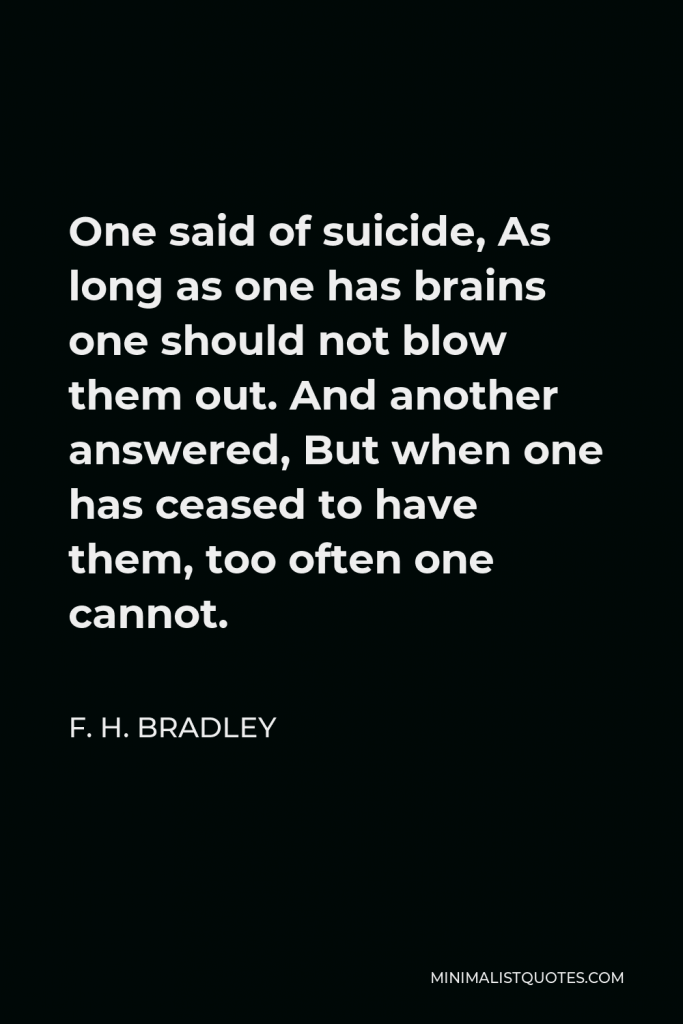

One said of suicide, As long as one has brains one should not blow them out. And another answered, But when one has ceased to have them, too often one cannot.
F. H. BRADLEY -





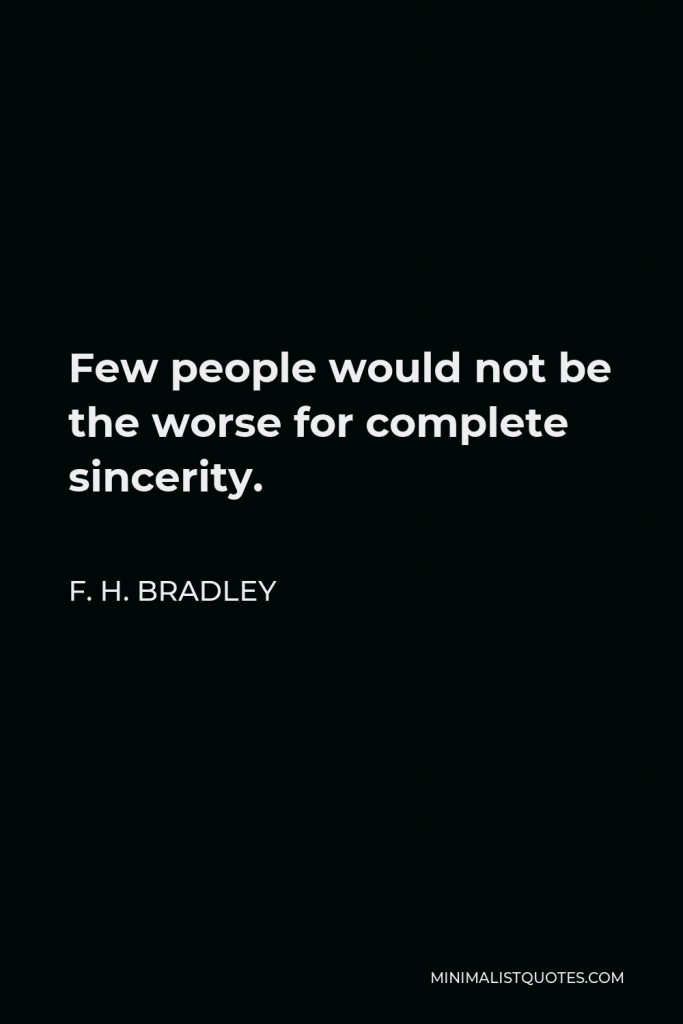

Few people would not be the worse for complete sincerity.
F. H. BRADLEY -





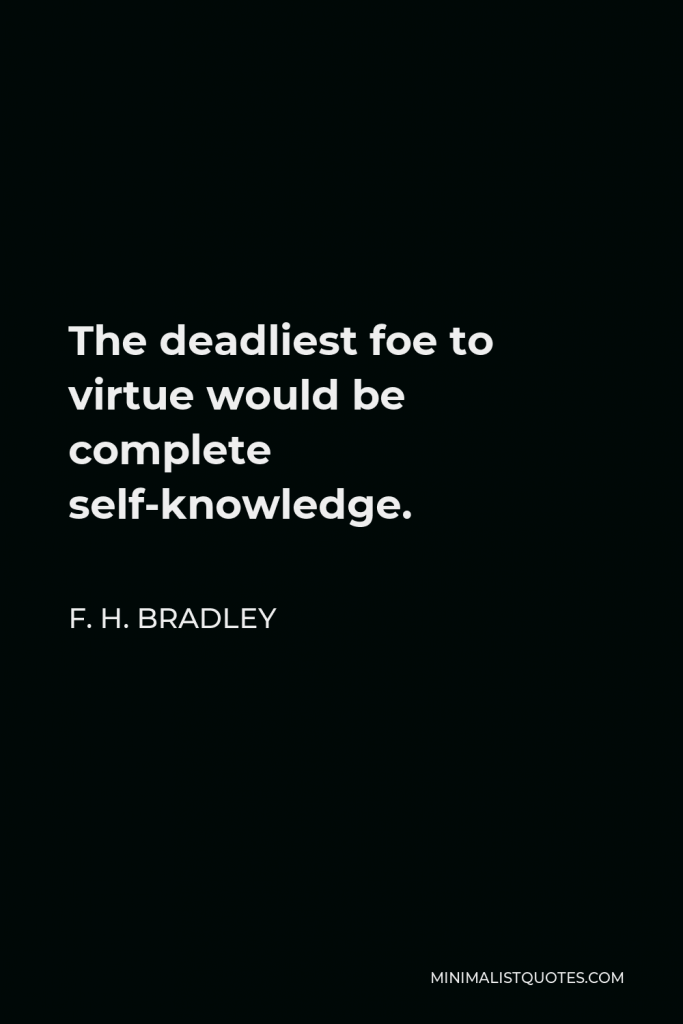

The deadliest foe to virtue would be complete self-knowledge.
F. H. BRADLEY -





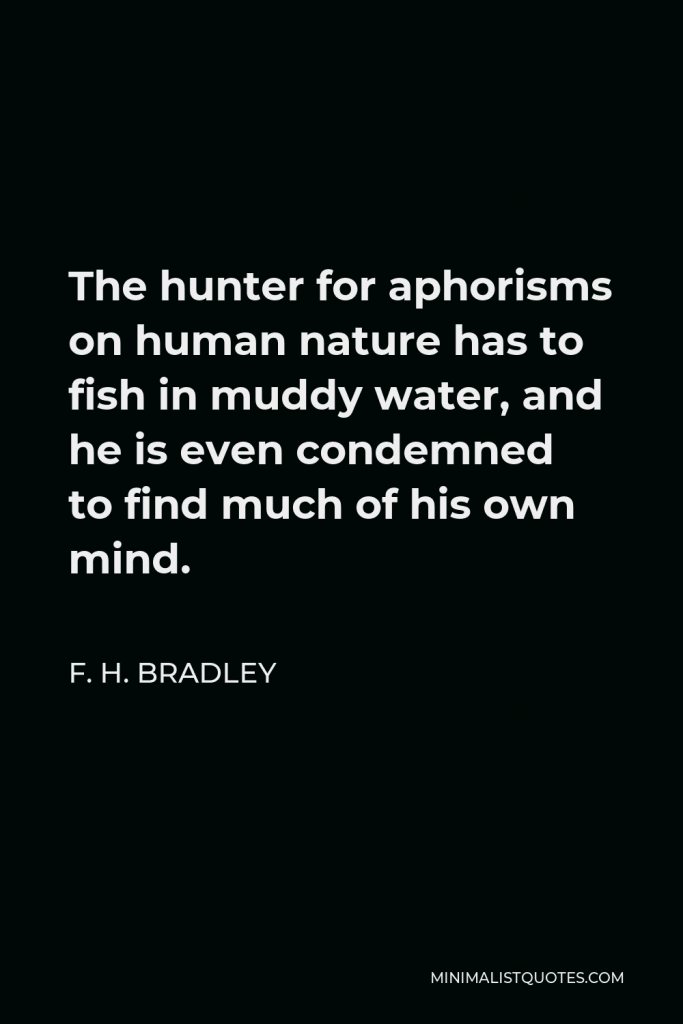

The hunter for aphorisms on human nature has to fish in muddy water, and he is even condemned to find much of his own mind.
F. H. BRADLEY -





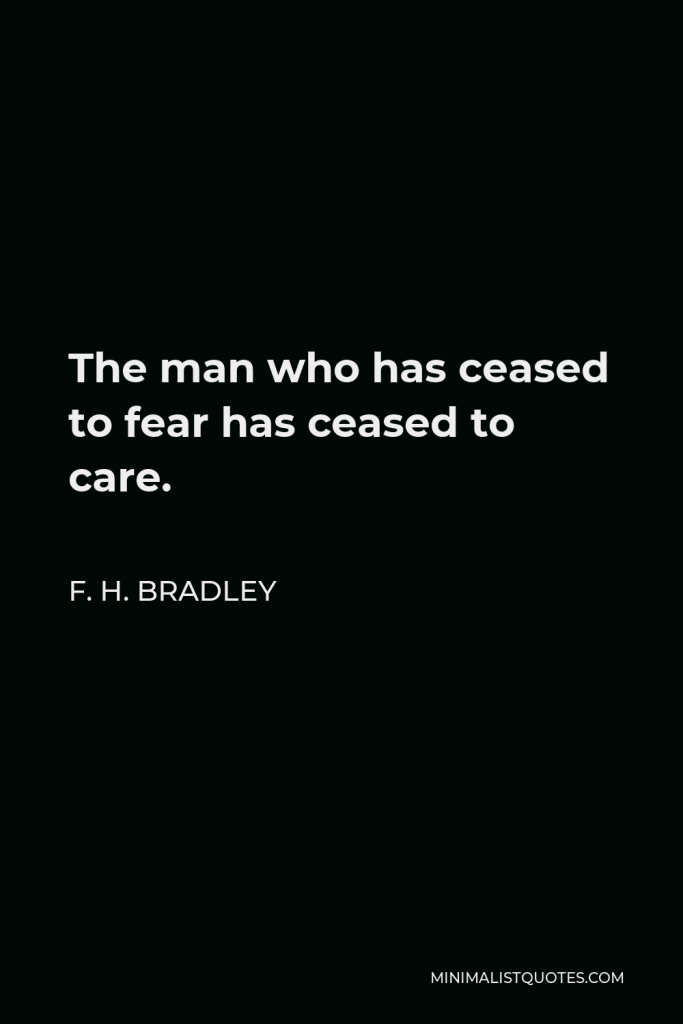

The man who has ceased to fear has ceased to care.
F. H. BRADLEY
